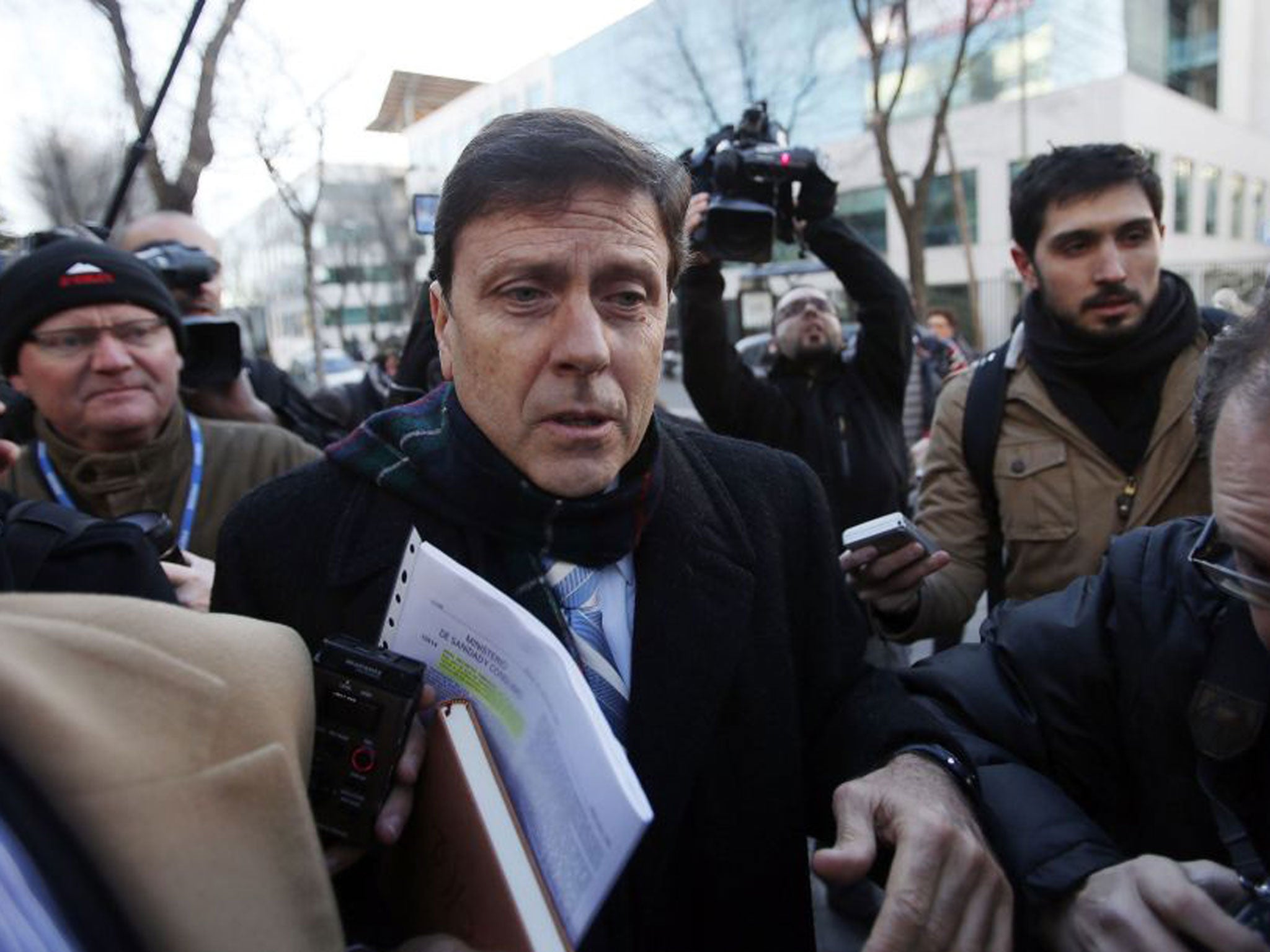The Last Word: Truth and reconciliation over drugs in sport? I will take the truth part...
The decision not to demand Fuentes lists dopers is catastrophic

These are not happy days for those who like their sport wholesome, in particular those who like their sport to come on two wheels. On Thursday, Michael Rasmussen, the Danish cyclist, confessed to having doped for 12 years, a sporting lifetime. Yesterday, the trial of Eufemiano Fuentes, a Spanish doctor accused of wide-ranging doping, resumed in Madrid, and earlier in the week it was confirmed Frank Schleck would miss this year's Tour de France to serve his own doping ban.
And then there is Lance Armstrong, a man who did so much to bring cycling to a wider audience while all the time sowing the seeds for the dreadful crop now being harvested. Armstrong's latest line is to underline his "we were all at it" defence, pedalling the idea the sport was rotten and had been for generations, attempting to damn every rider with his own guilt.
Grim times and it is going to get grimmer. On Monday, the spotlight will switch to football with the results of a Europe-wide police investigation into match-fixing revealed. Last year, Jacques Rogge held up match-fixing as the coming threat, one fast overtaking doping as the foundation-shaking menace to sport's integrity. It is a real presence, and one still to be properly appreciated, but doping has more than got its own back in recent months. It's alive and kicking.
And it's an issue that remains across sport. It is by no means whatsoever cycling's problem alone. Yesterday, a Polish winter Paralympian was banned for doping; earlier in the week it was announced the Chinese swimmer Li Zhesi, a world record-breaker at 14, will serve a two-year ban.
Li will be back for the Rio Games and that is wrong. Last summer I sat in the Olympic Stadium and watched Asli Cakir Alptekin win 1500m gold for Turkey and Nadezhda Ostapchuk shot putt gold. The Belarusian has since had her medal stripped, having been found to have taken steroids. Alptekin did not fail a test in London. She did fail a test for EPO, the same drug Armstrong and Li used, in 2004 and was one of five gold medallists in London to have served bans for doping.
Cycling is paying a high price for the long refusal of those who run the sport to accept they had a problem (and one that has still not vanished). Sport in general has to learn lessons too. Sport has become a badge of honour displayed far beyond the playing field. Where it used to be the likes of East Germany and the Soviet Union who wanted athletic triumphs to trumpet their regimes' worth, it is now a common theme. It is unquantifiable, but the Olympics were good for Britain. Sport has been good for Spain too, from a starting point of the Barcelona Olympics in 1992. That is why they want them back, in Madrid in 2020.
The bidding process for an Olympics is long, complicated and subject to erratic swings; damage is easily done and uneasily repaired. There is a temptation to bury bad news. Whether that has had any bearing on the Fuentes trial remains to be seen but the decision by the judge not to demand that Fuentes lists all those he helped dope is catastrophic for sport. There are persistent allegations it stretches well beyond cycling, notably to football and tennis.
Three days ago, as the Fuentes trial gathered pace, the International Tennis Federation president Francesco Ricci Bitti pointed out Rafa Nadal has been tested "six or seven" times as he prepares to return. Nadal has never failed a test and there should be no reason to point any suspicious fingers but the insinuation and rumour is out there now and it will not go away unless that list of names is revealed. Neither will it go away from Spain's footballers.
Burying heads in the sand, as cycling did until too late, will make the problem worse. The current desire for a truth and reconciliation process in cycling is halfway to being the right course of action. There must be truth about doping, not only in cycling but in sport as a whole.
Those arguing for reconciliation are forgetting the core essence of what sport is about. Crime is nearly always muddled and muddied, dictated by circumstance and punished by circumstance. Doping in sport isn't. By and large it is a clear choice: "I chose to dope."
Sporting punishment should fit sporting crime. Li should not be at the Rio Olympics. None of those who won tarnished gold in London should have been there. There has to be lasting punishment, a punishment on behalf of all athletes who did not dope, did not cheat and were beaten by those who did. Dopers should be banned for a sporting lifetime.
Join our commenting forum
Join thought-provoking conversations, follow other Independent readers and see their replies
Comments
Bookmark popover
Removed from bookmarks